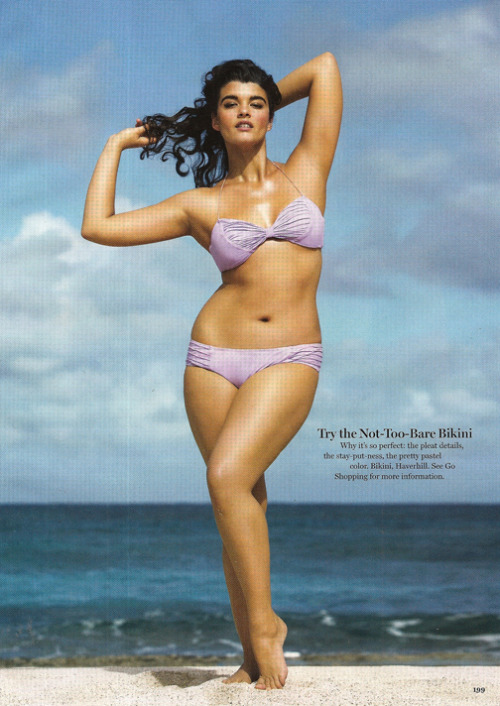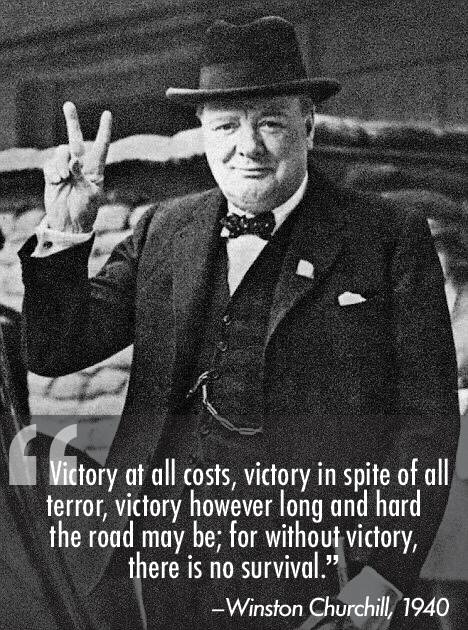I’ve noticed a lot of commercials for a new TV show on ABC Family. The show stars Hairspray star Nikki Blonsky, and Hayley Hasselhoff (yes, David Hasselhoff’s daughter). The show is called Huge, and it’s about overweight teenagers at fat camp, based on the book by Sasha Paley. But unlike shows such as The Biggest Loser which empower overweight adults to lose weight and get healthy, the previews for Huge seem to glorify obesity. It’s all about being happy with your body — a good thing — but previews feature Blonsky’s character earnestly asking why she should have to change if she doesn’t want to. The idea being put forward seems to be that it’s OK to be obese. “Everyone wants us to hate our bodies,” Blonsky’s character says. “Well, I refuse to.”
Should someone who is obese hate their body? Well, no. Hate is an awfully strong word. But the way this show presents obesity as just another lifestyle choice, one that’s perfectly fine to make, is wrong. And it’s especially wrong considering the show is about teenagers, and directed towards teenagers.
Interestingly, Blonsky was interviewed about the show, and she says that her weight hasn’t affected her career at all.
The experience for me has been that it doesn’t really matter if I’m plus-size or not. It’s just been really interesting characters that people either want me to play or think I can play. I’ve been really fortunate that people haven’t put me in a box and said, “Oh, you’re just going to play the plus-size girl.” My new movie (“Waiting For Forever”) that’s coming into theaters in the fall, I play a young mom [who’s] married. That script wasn’t for a plus-size girl. It was just for a very caring person who could play a mom and they thought I was a good match. So, no, [casting is] definitely not based on my weight. It’s based on the weight of my talent and the weight of my heart and what I put into my projects.
I hate to be Debbie Downer here, but that’s a flat-out lie. Her new movie may be the exception, but Blonsky has done very little work in Hollywood besides Hairspray, where she played an overweight teenage girl. Aside from that movie, she has appeared as a guest star in a few TV shows, and starred in a made-for-TV movie called Queen Sized, which is about… an overweight teenage girl. Now she’s starring in a television show about… an overweight teenage girl.
Yeah, I’m pretty sure Nikki Blonsky has been typecast by Hollywood.
I agree with Blonsky on one point from her interview. It is incredibly frustrating that all actresses and models have to be a size 2 or smaller. It isn’t realistic, and I would love to see a more realistic portrayal of women in the media. Glamour has done a great job with this, featuring plus-size models in a normal way. A lot of times, magazines will throw in a token feature about plus-sized women, but most of their clothes and articles feature bone-thin models with their clavicles sticking out. Instead of going that route, Glamour made a commitment to start featuring plus-sized models on a regular basis in their magazine, and from what I’ve seen so far, they’ve held to it. But.
But the definition of plus-size in the modeling world is not exactly the same thing as what Nikki Blonsky is advocating. Plus-size in the model world is usually somewhere between a size 8 to a size 14, and the size 14 is usually on the large end. This is about the average size of an American woman today (size 14). Consider two plus-size models that Glamour has been regularly featuring. The first picture is of model Lizzie Miller, who had the following photo in an article in the magazine — and its the photo that started Glamour on its path to plus-size enlightenment.

Then there’s Crystal Renn, a formerly anorexic model who stopped starving herself and embraced her curves. She’s now at a healthy weight and looks like this:

Glamour also ran a feature on embracing plus-size models that included the following photo:

Renn is the girl in the front leaning forward, and Miller is draped across her back. I thought all of the women in the photo looked sexy and beautiful. Crystal Renn wears a size 12. Lizzie Miller wears a size 12-14. This is normal… and it isn’t unhealthy.
Compare these photos to the size of Nikki Blonsky and the other teenagers in the trailer for Huge. Not only is Nikki Blonsky considerably heavier than the above-mentioned models, but she’s also shorter. She’s only 4’10”, so weight goes a lot farther for her than it does for a model who is 5’10”. Nikki Blonsky clearly seems to be on the obese side of the spectrum, and morbidly obese at that. Why should we celebrate morbid obesity?
This has been happening lately on a disturbingly widespread scale, and it is primarily focused towards women. Women are told, over and over again, to embrace their bodies the way they are, even if they’re overweight. Don’t change! Love your curves! Your boyfriend will still love you even if you gain fifty pounds! Don’t be ashamed, be fat and be proud! You’re beautiful just the way you are!
While fat women shouldn’t be shamed, telling them they don’t need to change doesn’t help them either.
Feministing has chimed in about this show, and unsurprisingly, they’re praising it. Anything that could be construed as a negative comment about being overweight is, of course, anti-feminist and misogynistic because you’re upholding the values of a patriarchal society, or some crap like that. One commenter had the audacity to suggest that we aren’t doing obese women any favors by celebrating obesity:
Being anorexic is no better or worse than being obese, and neither should be glorified. I agree that people of all sizes should be given the decency to be given roles that are not focused on their weight or label them as the token “fat” person. People are people, regardless of their size.
However, I will not get on this feminist kick that obesity, and the support thereof is OK. I find it as being a true disservice to women. I know that there will be people on here who want to argue that they are 50 pounds overweight and healthy, and that is just delusional. It’s not healthy. Why is Nikki Blonsky eating herself to an early grave? That is a FEMINIST question I would like to see addressed.
Acceptance of people of all sizes is one thing…telling women it’s ok to be obese is another. I see a lot of the latter going on on this website. Women are dying in this country left and right because they are obese. How is enabling this feminist?
This common-sense, logical, reasonable thought was quickly and overwhelmingly criticized by the majority of the other commenters. This article, which says that being fat can be healthy, was frequently cited. The blog it is from is about “fat acceptance”, and the author gets her information about how being overweight can be healthy from a blog titled “Junk Food Science”.
Hmm. Color me skeptical.
Here are the facts about obesity. Right now, about 1/3rd of Americans are considered obese. Obesity is currently the number two cause of preventable death in the United States, behind tobacco — and obesity is well on its way to reaching the number one spot.
Some of the health consequences for obesity in adults, from the Center for Disease Control (CDC) include increased risks of the following: coronary heart disease, type 2 diabetes, cancers (endometrial, breast, and colon), hypertension, dyslipidemia, stroke, liver and gallbladder disease, sleep apnea and respiratory problems, osteoarthritis, gynecological problems – and that’s just the tip of the iceberg. There’s an even more exhaustive list here and here. Simply put, it’s easy to see that being overweight or obese is not healthy and leads to a much poorer quality of life, if not an earlier death.
And that’s just obesity in adults. Childhood obesity is much worse (and let’s not forget, this TV show is about teenagers). Children and teenagers who are obese are more likely to be obese as adults, and to have much higher risks for numerous health problems.
This acceptance and glamorization of obesity reminds me of how Hollywood used to glamorize cigarettes. Today, of course, smoking is commonly known to be dangerous. People still do it, but it isn’t looked at in a positive light. And while in our greater society fat people are still looked down upon, there is certainly a movement to be more accepting of fat. Does that really help people, or does it just send them down a more comfortable path to an early death? If someone chooses to be obese, then hey, that’s their choice, just like someone can choose to smoke. It doesn’t mean it has to be a choice that’s accepted in our society as just another lifestyle choice.
I can agree that it would be great if we got away from the current anorexic standards in Hollywood and had more realistic representations of women. But that doesn’t mean we need to go to the completely opposite side of the spectrum, and start glamorizing obesity. We’re getting fatter and fatter in the United States, and right now, we need to be promoting truly healthy lifestyles.
Just because you don’t approve of starvation, it doesn’t mean you have to be for gluttony. We aren’t doing anyone any favors by promoting such an unhealthy lifestyle.










Recent Comments